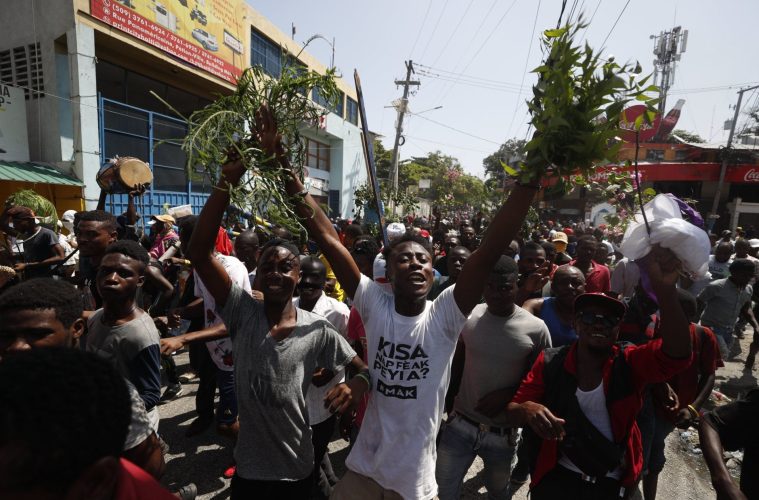The Current Unrest in Haiti: Causes and Possible Outcomes
Haiti, the Caribbean nation celebrated for its historic fight for independence, is once again engulfed in turmoil. The ongoing unrest is deeply rooted in the nation’s history, marked by its revolutionary past and the persistent shadow of modern-day colonialism. This article delves into how Haiti’s fight for sovereignty continues to shape its present challenges and examines the global struggle for control over its natural resources.
Historical Roots of the Crisis
Haiti’s current unrest cannot be understood without acknowledging its history as the first nation to achieve independence from colonial rule through a successful slave revolt in 1804. This victory, however, came at a steep cost. The global powers of the time, led by France, imposed crippling indemnities and economic sanctions, ensuring Haiti’s new-found independence would be marred by perpetual debt and economic subjugation. The legacy of these actions continues to weigh heavily on Haiti, manifesting in systemic poverty and underdevelopment.
In the modern era, these historical injustices have been compounded by neocolonial practices. International financial institutions and foreign governments have imposed economic policies that prioritize external interests over the needs of the Haitian people. For example, structural adjustment programs imposed by the International Monetary Fund (IMF) and the World Bank in the 1980s and 1990s forced Haiti to reduce tariffs on imported goods, undermining local agriculture. The influx of subsidized foreign rice, particularly from the United States, devastated Haitian rice farmers, leaving the country increasingly dependent on imports.
Similarly, foreign-led mining operations have prioritized resource extraction over environmental and community well-being. Companies granted licenses to exploit Haiti’s gold and other minerals often operate with minimal oversight, leaving local populations with little benefit while dealing with environmental degradation.
The Role of Modern-Day Colonialism
Haiti’s political instability is not solely a result of internal governance issues but is also influenced by external interference. Global powers, particularly from the first world, have consistently sought to exert control over Haiti’s resources and geopolitical position. Economic aid and development programs are frequently tied to conditions that undermine Haiti’s sovereignty, perpetuating a cycle of dependency.
One glaring example is the handling of international aid after the devastating 2010 earthquake. Billions of dollars in aid were pledged, yet much of this money was channeled through foreign organizations and contractors rather than Haitian institutions. The result was a lack of sustainable development and an erosion of trust in both international and domestic governance.
This dynamic is exacerbated by the presence of armed gangs, which many Haitians see as both a symptom and a tool of systemic exploitation. These groups thrive in an environment of economic desperation and weak governance, often serving as proxies for more powerful actors seeking to destabilize the nation for strategic gain. The Haitian government’s inability to combat these forces reflects the broader challenges of external domination and internal disarray.
The Humanitarian Cost
The human toll of this crisis is profound. Displacement, violence, and poverty are driving thousands of Haitians to seek refuge abroad, often through dangerous and illegal means. Essential services, from healthcare to education, are collapsing under the strain of ongoing instability. The exploitation of natural resources has further marginalized local populations, leaving them without access to the wealth generated by their own land.
Possible Outcomes
The resolution of Haiti’s crisis requires a reckoning with its history and a commitment to genuine sovereignty. One potential path forward is the establishment of a Haitian-led government that prioritizes local needs over foreign interests. This would require the international community to respect Haiti’s autonomy and provide support without strings attached.
However, continued external interference could deepen the crisis, leaving Haiti trapped in a cycle of exploitation and instability. If multinational corporations and foreign governments persist in prioritizing resource extraction over sustainable development, the situation will likely deteriorate further.
A just resolution will also demand accountability from global powers and corporations that have profited from Haiti’s resources while neglecting its people. A shift toward fair trade practices and investments in local infrastructure could pave the way for lasting stability.
Conclusion
Haiti’s current unrest is not merely a domestic issue but a global one, rooted in historical injustices and perpetuated by modern-day colonialism. To chart a path toward peace and prosperity, Haiti must reclaim control over its resources and political future. The international community’s role should be one of support and reparation, rather than domination, to help the nation realize the full potential of its hard-won independence.




